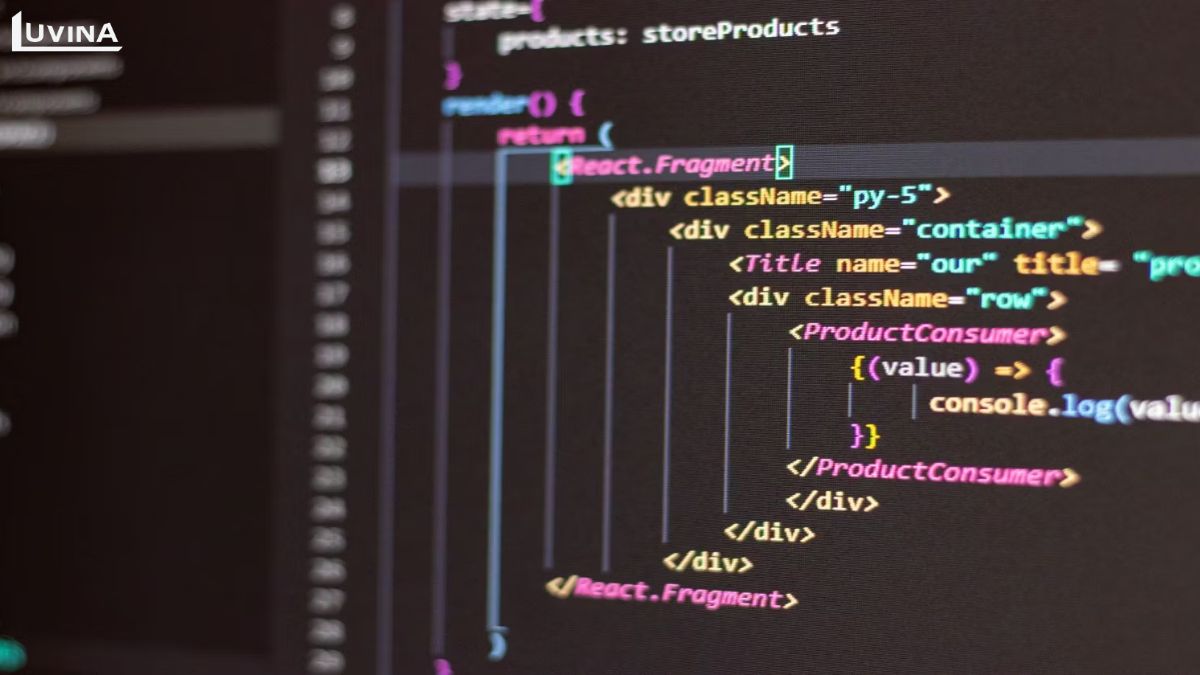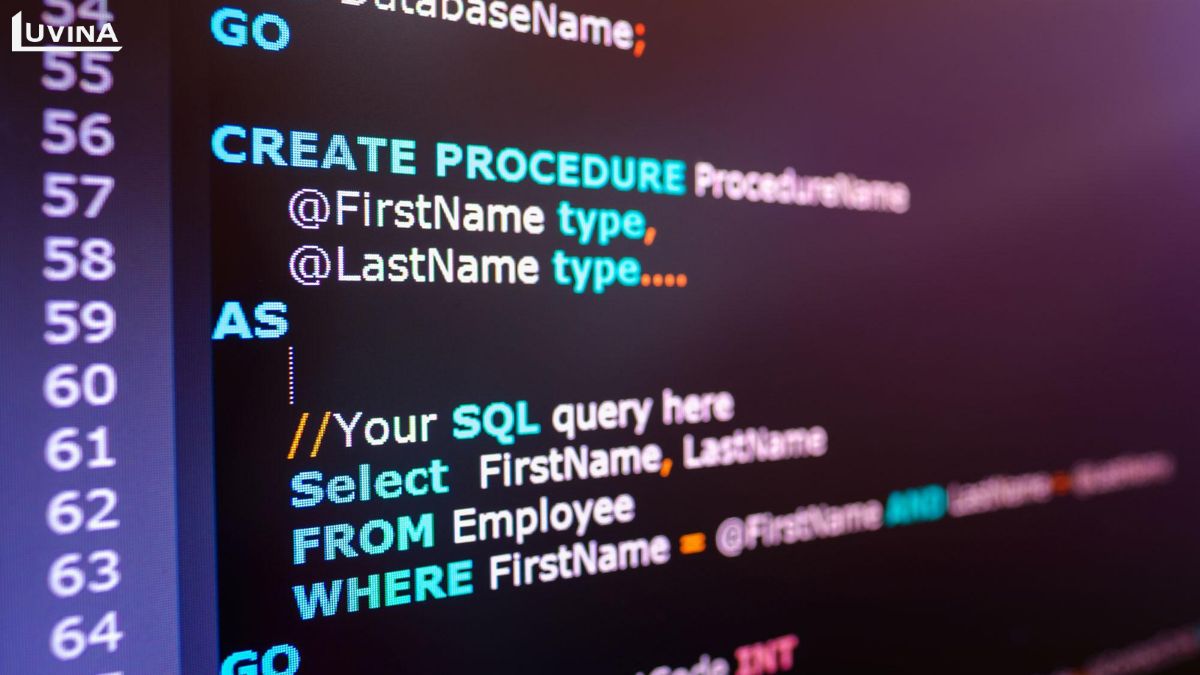The past decade has marked a fascinating period of growth for the financial technology industry, from mobile banking applications to storing encrypted data using blockchain. In this context, software development and applications are crucial in helping businesses in the financial sector conduct transactions and offer innovative financial services.
Understanding programming languages for finance is a key first step to creating financial technology applications. The article below will help you gain a deeper understanding of fintech programming languages with the top 9 best programming languages and their key features.
Python
Unsurprisingly, the top spot in the best programming language for finance is taken by Python. PPython holds the record of being among the most popular programming languages in the world today, as well as being highly acknowledged in different business sectors. If you have explored programming languages, you’ll also notice that Python is frequently featured in educational curricula.
Python is one of the most sought-after programming languages for finance domain because of its simplicity, flexibility, accessibility, and very friendly nature for complete beginners. Python syntax is relatively clear and readable; thus, it can solve complex financial problems and scale up easily to meet the needs of financial companies from a small startup to large-scale corporations, banks, and even global trading firms.

In particular, Python’s vast library of tools and packages makes coding easier for developers, saving time and effort. In the fields of data science, machine learning, and AI, Python’s functionality and resources are extremely beneficial. These qualities have helped, and will continue to help, Python maintain its position as the best coding language for finance today, especially in quantitative finance.
Currently, banks and financial institutions are increasingly seeking to collaborate with technology. As a result, the popularity of the best programming language for fintech, Python, is expected to rise even further. Evidence of this trend can be seen as major banks like Bank of America are making efforts to shift their technology stacks from older codes to Python.
Java
Java is also a highly-rated programming language and enjoys the same rating as Python. It especially dominates in the financial world. Proof can be seen in how most large banks worldwide have used Java for over a quarter of a century. Even today, while the years are passing and new languages and technologies are emerging, it remains one of the most important programming languages for finance.
The reason for Java’s popularity and standing in finance is its versatility. Java can be used to write various programs and applications for different purposes. Its flexibility has revolutionized how banking and shopping transactions are conducted in the fintech sector. Developers often use Java to build e-commerce platforms, banking applications, and trading algorithms in financial services.
Another advantage of the best programming language for financial analysis, Java, is that programs written in Java can run on any machine. This portability is highly valued in finance, as developers, companies, and users may use different devices and operating systems. Java is also regarded as a programming language for financial modeling with a friendly learning curve. It can handle significant amounts of data while maintaining tight security.
As the best programming language for quantitative finance, Java also boasts an extensive library of open-source tools and frameworks. The wide variety of available tools and frameworks allows developers to easily build and maintain financial applications and systems.
C++
Another veteran programming languages for finance that cannot go unmentioned is C++. The enduring nature of C++ has made it a widely used programming language across many industries, including technology and finance. Today, numerous companies, including many financial institutions, have used C++ for years in software development, operating system creation, and other products. Notably, C++ is also regarded as the best programming language for quantitative finance.

The biggest advantage of C++ is its object-oriented programming capabilities, which build upon C without sacrificing speed or functionality. It is a fast language because it is compiled, meaning the compiler translates its code directly into machine language. Additionally, developers are currently building thousands of libraries and tools to enhance C++ usage. As a result, even though C++ is an older programming language in the financial sector, it remains popular for both machine learning and AI compared to other programming languages. C++ is also considered to have a better learning curve, offering greater durability and long-term viability in the finance industry.
C#
C# is one of the programming languages for finance, a next-generation language of C++, and is currently used to build dynamic applications within the .NET and Microsoft ecosystems. C# is considered the best alternative to Java, with a more modern approach and better support for enterprise solutions.
The reason C# is regarded as one of the best programming languages for fintech and finance is due to its robust, flexible, and reliable nature. C# can handle complex calculations and has strong data analysis capabilities. This best programming language for financial modeling also comes with a powerful set of libraries and frameworks for working with data, making it easier to manipulate data from various sources.
ReactJS
Although not a full programming language, ReactJS still deserves a spot in the top 9 programming languages for finance. ReactJS is essentially a JavaScript library widely used by front-end developers. This tool supports the testing process, as it offers a range of testing utilities that help ensure the quality and reliability of financial applications. When developing and programming financial applications, ReactJS facilitates unit testing, integration testing, and component testing, allowing developers to identify and resolve issues early in the development cycle.

React Native
React Native is an open-source mobile development platform built on React, used for programming cross-platform mobile applications for both iOS and Android. This means that with React Native, developers don’t need to learn different programming languages for each platform, making the development process faster and simpler.
React Native is considered the best coding language to learn for finance and brings numerous benefits to financial and fintech companies. These companies often aim to offer mobile applications to their customers, such as banking apps, payment solutions, or investment platforms. When used in fintech application development, React Native can save costs, shorten development time, and produce apps that work seamlessly on both iOS and Android. This programming language for financial modeling also enhances the user experience, making it smoother and more engaging, which in turn boosts business performance.
SQL
SQL (often pronounced as “Sequel”) is different from other programming languages for finance on this list. Unlike languages like Python or Java, SQL doesn’t help you build websites or applications. While Python and Java are versatile programming languages, SQL is considered a domain-specific language.

In the finance and fintech sectors, SQL plays a crucial role as it enables businesses to leverage the power of databases. It primarily works with relational databases to store, locate, retrieve, and manipulate data within and from these databases. SQL is an essential tool for professionals in the finance industry because financial organizations often generate vast amounts of data that require analysis. The financial sector also deals with highly complex structured data compared to most other industries, and analysts can use SQL to find patterns and turn this data into valuable insights.
Ruby/ Ruby on Rails
Ruby is a free, open-source programming language created in 1995 by Yukihiro “Matz” Matsumoto. He designed the language to appear simple externally but to be complex internally, similar to the human body. Ruby began to gain popularity along with the rise of the Ruby on Rails framework and quickly became one of the most popular programming languages for web application development.
Ruby is described as one of the programming languages used in fintech for its simplicity and high productivity. This is why many companies, especially startups in the fintech space, choose Ruby alongside the Ruby on Rails framework. Its ease of use, security features, flexibility, and speed are key reasons why developers favor this language.
Programmers can use Ruby to build a variety of financial products, including payment systems and dashboards. With the help of the Rails framework, coding becomes faster and simpler. Ruby is also considered one of the best coding languages to learn for finance for tech companies looking to create MVPs (minimum viable products).
JavaScript
JavaScript is one of the key coding languages for finance that plays a significant role in developing dynamic and interactive front-end technologies. As a versatile programming language, JavaScript is primarily used to create engaging, user-friendly web applications in the financial sector. It enhances the user experience by enabling interactive elements on websites, making them more appealing and functional.

When JavaScript is employed to develop financial products, businesses benefit from highly secure solutions with excellent portability, scalability, and compatibility. This language is particularly valuable for its cross-platform capabilities, allowing applications to run smoothly on different devices and operating systems. Additionally, JavaScript can efficiently handle and analyze large volumes of data, making it a vital tool in the fintech landscape.
Summary – Choose Your Best Programming Languages for Finance
Here are the top 9 programming languages in finance and fintech. These programming languages are essential tools and frameworks for financial activities like data analysis, algorithmic trading, risk management, payment systems, etc. They help professionals in the field manage large amounts of data efficiently, automate processes, and make informed decisions.
It’s understandable that not every company has a full team of experts who are proficient in the programming languages for financial analysts. That’s why many companies choose to work with software development teams to ensure the project’s output quality. When selecting a software development team, it’s important to consider how familiar the developers are with the relevant tech stacks. At Luvina, we have extensive experience in building financial and fintech solutions using the most suitable programming languages for finance professionals, ensuring that we deliver software and applications with optimal performance.
Contact Luvina today to get advice on programming languages for finance and the best direction for your business ideas.









Read More From Us?
Sign up for our newsletter
Read More From Us?
Sign up for our newsletter